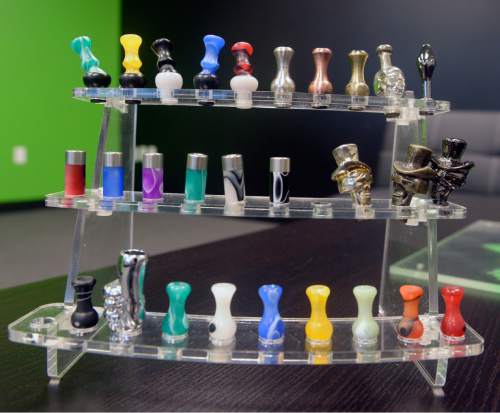This is an archived article that was published on sltrib.com in 2015, and information in the article may be outdated. It is provided only for personal research purposes and may not be reprinted.
There are only two reasons why any state that cared at all about the health of its citizens would allow the sale of electronic cigarettes, vaping cartridges and associated paraphernalia within its borders.
The good reason is that, wisely used, e-cigarettes indeed have the potential to help poor souls who have been unable to quit their tobacco addiction by any other means. E-cigs can help smokers cut down on their tobacco intake, avoid some of the other nasty chemicals that piggy-back into their systems by attaching themselves to the craved nicotine and, with luck and perseverance, even quit altogether.
The not-so-good reason is that if vaping supplies aren't sold in legal, regulated commerce, they will become a booming black market business, beyond the reach of efforts to maximize the technology's effectiveness and minimize its harm. And the potential for harm is large when vaping is taken up by people, mostly young people attracted to the often candy-flavored varieties, who never smoked before.
Then, e-cigs are just another nicotine delivery system, addictive, poisonous and worthy of government oversight.
The Utah State Health Department has developed proposed regulations for the sale of vaping supplies. While the marketers who worked with the department's review have signed off on the draft, others in the businesses Monday appealed to a legislative committee to block at least some of the proposed regulations.
Of primary concern, apparently, is a rule that would require prominent labeling of vaping cartridges as containing dangerous and addictive substances — which they do — that should be kept away from children and pets — which they should.
Because maybe 80 percent of those refills are made overseas, lawmaker were told, manufacturers participating in a global market won't want to bother attaching such labels to the small portion of their product line destined for Utah. And that would dry up the state's supply.
It was more than troubling that some members of the committee seemed more concerned about keeping the e-cig dealers cash flow up than they were about public health.
Health department representatives said the input they heard from e-cig dealers was that the labeling requirement wouldn't be a problem. They also noted that the rules would not take effect until July, giving everyone time to either comply or explain why they couldn't.
E-cigs are not just another consumer product. They are a trendy new spin on a very old addictive drug. They should be viewed skeptically by government, and regulated strictly.



